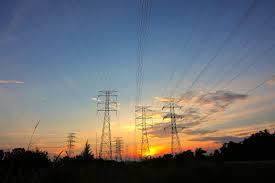Top 10 Reasons Power System Analysis is Vital for Every Electrical Engineer

Introduction
In the world of energy and electricity, ensuring that systems are efficient, safe, and reliable is essential. That’s where Power System Analysis comes in. This fundamental discipline is the backbone of how we plan, design, operate, and protect electrical power systems.
Whether you're a student, a working professional, or simply curious, understanding power system analysis will help you appreciate the technical brilliance behind the electricity we use every day. And for every Electrical Engineer, this knowledge isn't just useful—it’s crucial.
What is Power System Analysis?
Power System Analysis is the process of studying and evaluating the electrical power network to ensure it operates efficiently, safely, and economically. It involves several key components such as:
-
Load flow studies
-
Fault analysis
-
Stability studies
-
Harmonics and power quality
-
Economic operation
Why Power System Analysis Matters
1. Ensures Grid Reliability
The primary goal is to ensure the power system remains stable and uninterrupted. A well-analyzed system can prevent blackouts, outages, and expensive downtime.
2. Helps in Planning New Projects
When building a new substation or connecting a new power plant, engineers must analyze how it affects the entire grid. Power system analysis helps predict and mitigate problems.
3. Improves Safety
High voltages and currents can be dangerous. Analyzing the system helps engineers design protections to keep workers and equipment safe.
4. Enables Efficient Energy Distribution
Without analysis, some areas may be overloaded while others underused. Balanced systems reduce energy loss and lower costs.
5. Supports Renewable Energy Integration
Solar, wind, and other renewable sources are intermittent. Analyzing how these fit into the grid ensures they don't cause instability.
Components of Power System Analysis
Load Flow Analysis
This helps determine the voltage, current, and power flowing through each part of the system under normal conditions.
Short Circuit (Fault) Analysis
Simulates what happens during faults like short circuits. This is vital for designing protective devices such as circuit breakers and relays.
Stability Analysis
Evaluates whether the power system can return to normal after a disturbance like a line outage or generator failure.
Harmonic Analysis
With the rise of electronics and renewable inverters, power quality issues like harmonics must be addressed. This analysis ensures smooth power delivery.
Role of Electrical Engineer in Power System Analysis
Electrical engineers are at the heart of designing, analyzing, and maintaining power systems. Their tasks include:
-
Gathering system data
-
Running simulations
-
Interpreting results
-
Recommending solutions
-
Ensuring compliance with standards (like IEEE, IEC)
Without skilled electrical engineers, reliable power delivery wouldn't be possible.
Real-World Applications
-
Urban Planning – Ensuring new buildings or areas get adequate power without overloading existing systems.
-
Disaster Management – Planning for backup power routes in case of earthquakes or floods.
-
Green Energy Projects – Assessing the impact of solar and wind farms before they go live.
-
Factory Design – Ensuring a new industrial plant has a safe and sufficient power supply.
The Future of Power System Analysis
As we move toward smart grids, AI, and IoT, power system analysis will evolve too. Some key trends include:
-
AI-based grid optimization
-
Real-time monitoring with IoT
-
Integration of electric vehicles and smart homes
-
Cloud-based power analysis platforms
Electrical Engineers will need to stay updated with these technologies to remain effective.
Conclusion
Power System Analysis is not just a topic for textbooks—it's a real-world tool that ensures we have electricity in our homes, offices, and hospitals. For every Electrical Engineer, mastering it opens doors to impactful, high-paying careers in energy, automation, and infrastructure.
FAQs
What is the main purpose of Power System Analysis?
To ensure the safe, efficient, and reliable operation of electrical power systems.
Is Power System Analysis difficult?
It can be challenging, but with the right training and tools, any engineer can master it.
Can I learn Power System Analysis online?
Yes, there are many online courses, tutorials, and software simulations available.
What software do electrical engineers use for analysis?
Popular tools include ETAP, MATLAB, PowerFactory, and PSS/E.
How does Power System Analysis help with renewable energy?
It helps assess how renewable sources will affect grid stability and performance.
For more blogs visit https://ayema.ng/blogs/232411/Top-10-Insights-Every-Aspiring-Electrical-Engineer-Must-Know-to
- Art
- Causes
- Crafts
- Dance
- Drinks
- Film
- Fitness
- Food
- Games
- Gardening
- Health
- Home
- Literature
- Music
- Networking
- Other
- Party
- Religion
- Shopping
- Sports
- Theater
- Wellness


